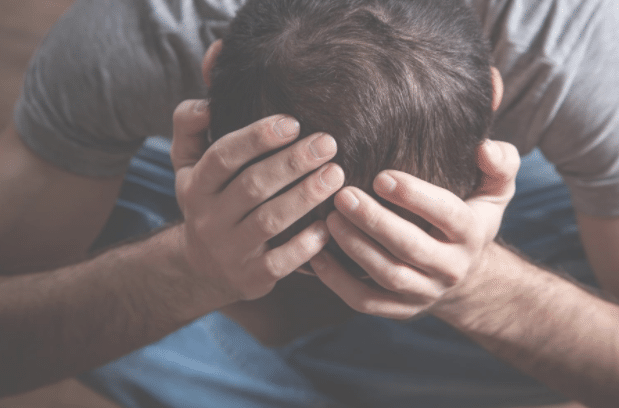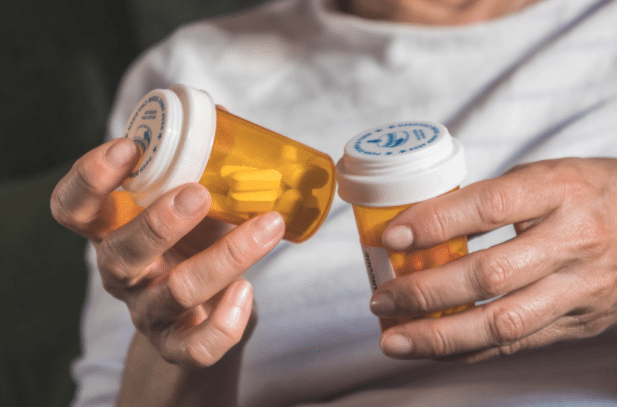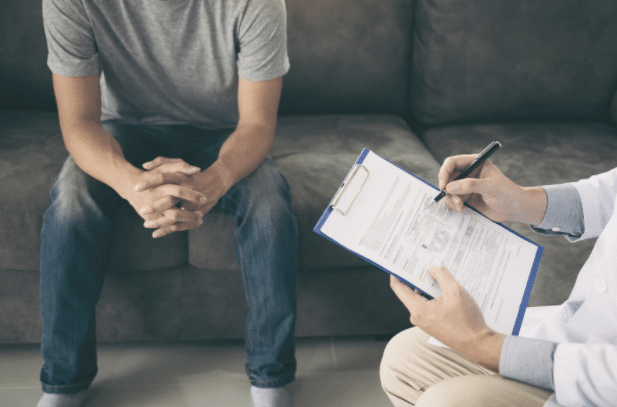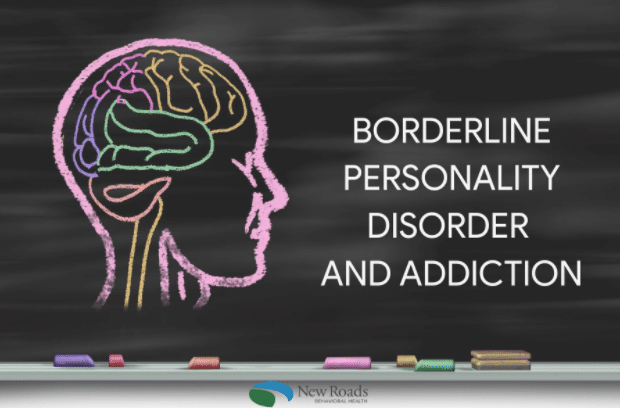Often co-occurring in the same patient, both addiction and borderline personality disorder (BPD) are known to be diagnosed simultaneously.
Actually, two-thirds of the individuals diagnosed with BPD have admitted to abusing substances during at least one point in their life.
Whether diagnosed, or living without knowing you have borderline personality disorder, these patients tend to use substances to mask their symptoms. Leading to abuse and eventually addiction.
This unhealthy, cohabitating relationship is extremely dangerous for those with BPD. The use of substances trigger some of the more dangerous symptoms of BPD. Including depression and fits of rage.
The emotional instability feeds those struggling with BPD and can lead to impulsive and dangerous behaviors, most commonly addiction. At New Roads Behavioral Health, we actively treat both disorders at once. Specializing in dual diagnosis, let us help you or a loved one who is struggling with BPD and addiction.
Borderline Personality Disorder Explained

BPD is a mental health disorder that severely affects a lot of one’s everyday thoughts and feelings. It causes unstable feelings about how you see yourself and others.
Most often including, but not limited to these symptoms:
- Unstable relationships with others.
- Fast altering self-identity and self-image that often leads to changing one’s goals and values.
- Seeing yourself as horrible, or as if you don’t even exist.
- A hard time working through emotions, or controlling behavior.
- Severe impulsive actions/bursts of anger. Like gambling, reckless driving, unsafe sex, spending sprees, binge eating, substance abuse, or sabotaging good things by suddenly quitting a good job, or ending a relationship.
- Suicidal ideation, sabotaging behavior, or self-injury. Usually in response to the fear of being abandoned or rejected.
- Extreme mood swings lasting from a few hours to sometimes days. Including acting overly happy, being irritable, feeling shame, or anxiety.
Usually starting in early adult years, though BPD symptoms seem to lessen over time.
It’s easy to become discouraged if diagnosed with a borderline personality disorder. It’s important to understand that over time with the correct treatment, we truly believe that individuals can start living a happy, healthy life.
Causes of BPD
Along with several mental health disorders, the causes of borderline personality disorder haven’t been fully figured out. As well as environmental factors, such as past child abuse or neglect, a borderline personality disorder may be linked to:
- Genetics. Some studies among families show that personality disorders could possibly be inherited, or strongly related to other mental health disorders diagnosed in a family member.
- Brain abnormalities. Other research has shown changes in certain areas of the brain involved in regulating emotions, impulsiveness, and aggressive behaviors. Along with some brain chemicals that regulate moods, such as serotonin, might not be functioning properly.
Risk Factors
Some influences on the development of personality can heighten the chances of developing a borderline personality disorder. These include:
- Hereditary factors. You may be at a higher risk if a close relative, such as your parents, or siblings, have the same or a similar mood disorder.
- Trauma during upbringing. A lot of people with BPD report being sexually, physically abused, or neglected during their childhood. Some patients lost or were taken away from a parent or their caregiver when they were young. Some had parents or caregivers who had substance abuse, or other mental health disorders. Even reports of being around hostile conflict and unstable family relationships/environments can become a risk factor to BPD.
Borderline personality disorder can negatively impact most aspects of someone’s life. It can take a toll on intimate relationships, keeping jobs, doing well in school, attending social events, and keeping a healthy self-image.
Alongside suffering from a borderline personality disorder, other mental health disorders aren’t uncommon. Substance abuse and addiction is some of the most common.
How BPD and Addiction Cohabitate

When looking at the symptoms of both borderline personality disorder and addiction, the similarities are hard to pick apart and they become difficult to diagnose.
Some of the similar characteristics include:
- Extreme Mood Swings
- Having Self-Destructive Tendencies
- Mean/Deceitful Behavior Towards Others
- Unhealthy Relationships
- Unstable Goals and Jobs
With such extremely close comparisons, it can be really hard for a diagnosis to be differentiated from one disorder to the other.
If someone is seeking treatment for borderline personality disorder, or treatment for addiction, that’s most likely when the dual diagnosis will be recognized.
Treating the Dual Diagnosis
When it comes to treating both BPD and addiction at once, it’s not an easy process.
It’s known that when someone is struggling with a borderline personality disorder, they’re already irritable and prone to emotional outbursts.
When those individuals are also struggling with addiction, those behaviors can escalate into an even higher level of risk.
We believe the hardest part for these patients is getting them to completely finish their program for dual diagnosis treatment for BPD and addiction.
“In a study of patients in a detox program, those with BPD were significantly more likely to have an unplanned discharge than those without BPD”
These are all symptoms commonly found in substance addiction.
- Suicidal Tendencies
- Unstable Moods
- Extreme Depression
- Paranoia
These factors are what make treating a dual diagnosis of both BPD and addiction near impossible at any basic rehab treatment center.
If the rehab center doesn’t offer individualized treatment plans for dual diagnosis patients, they aren’t capable of efficiently treating the addiction if the patient also has BPD, or any other co-occurring disorder.
Finding the Right Treatment Center

When receiving treatment for borderline personality disorder and addiction, getting a dual diagnosis treatment for both disorders is essential to proper recovery.
Along with all mental disorders, BPD and addiction can both be correctly treated with a combination treatment plan.
Including therapy and if needed, medication to relieve certain symptoms. Though BPD isn’t curable, finding healthy coping mechanisms and alternatives to dealing with difficult emotions will help patients live a more normal life.
It’s been known that there’s two methods of therapy for BPD and addiction treatment.
Starting with Dialectical Behavioral Therapy (DBT)
This was created directly for those with BPD. It includes showing patients to realize and accept the irrational thoughts and behaviors that come with BPD.
It also shows them how to create healthier coping mechanisms for their imbalanced moods, feelings, behaviors, and managing their relationships.
Next Used when Treating BPD: Family Psycho education
This is a therapeutic treatment that includes the family/loved ones of patients and educates them on BPD and it’s symptoms.
Helping them better navigate their relationship with the patient and how to support them through their mental illness.
Using education, behavioral therapy, group support, and life training to assist the loved ones of patients with BPD to manage the difficult symptoms.
These therapies for BPD have to be co-treated with addiction in order for the dual diagnosis to be properly approached. Treating the addiction with the right program, such as addiction counseling, must be done side by side to manage both disorders.
Finding the right treatment center for those diagnosed with both borderline personality disorder and addiction can be stressful. Whether it’s for you, or a loved one, you want to make the right choice.
At New Roads Behavioral Health, we have multiple treatment programs and are fully equipped to treat the dual diagnosis of BPD and addiction.
Our programs are customized around the diagnosis and symptoms of each patient. Making each treatment course as effective as possible. We want to avoid relapse, create coping skills for a chance at healthier relationships, and get patients living the stable, happy life they deserve.
Medications for BPD and Addiction
As there are currently no authorized medications to use specifically for treating diagnosed BPD, there are some other options to help the symptoms.
Depending on each patient and their symptoms, things such as antidepressants and mood stabilizers could help treat what they’re struggling with.
BPD affects everyone differently. Getting treatment and possibly the correct medications for stabilizing your mood and behaviors is recommended for severe BPD cases.
When it comes to addiction, medications could possibly also be used to manage these symptoms. This is a lot more carefully approached as addiction can show in more ways than one. It’s not right for all people struggling with addiction and should be used alongside a therapy plan.
Borderline personality disorder treatment is very hard. It takes a dedicated patient who not only needs but wants help. They need to be committed to staying in treatment and getting better.
Especially as BPD is not curable, managing the symptoms and getting the right treatment is a long-term, almost life long commitment.
Treating addiction is slightly easier, but when you put the two together, it raises the difficulty and extremity of correct treatment being essential.
The best outcomes come from patients who seek care for both BPD and addiction at the same time.
Get Help Today
At New Roads Behavioral Health, treatment of mental disorders and staying sober are equally important to us.
“Recognizing substance abuse as a symptom, and treating the underlying causes along with the addiction itself, gives our clients the best chance of getting–and staying–sober.”
With five separate treatment plans available, recovery from addiction, and proper treatment of borderline personality disorder is achievable.
We create each treatment plan around the patient’s individual needs and with our highly trained and educated staff. We’re ready to help you become a healthier, happy individual.
Contact us today if you’re prepared for the full dedication of BPD and addiction treatment.

